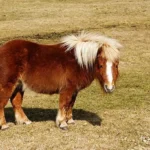
Cows, also known as cattle, are domesticated mammals raised primarily for their meat, milk, and hides. They belong to the bovidae family, which includes goats, sheep, and buffalo. Cows are easily recognized due to their large bodies, four legs, and long horns. They are well-known for their docility and are frequently portrayed in popular culture as peaceful, grazing animals. Cows, however, are much more than meets the eye. Here are some fascinating facts about these incredible creatures:
Cows are social animals who form strong bonds with their herdmates. They communicate with one another using vocalizations and physical gestures such as nuzzling and licking. They also have a good memory and can recognize individual members of their herd as well as other cows they’ve met before.
Cows have a unique digestive system that allows them to break down tough plant material efficiently. Their four-chamber stomach enables them to ferment food before digestion, allowing them to extract more nutrients from their diet. They also have a cud, which is a bolus of food that they regurgitate and chew again to break down the fibers even further.
It’s also worth noting that cows come in a variety of breeds, each with its own distinct characteristics. The Jersey cow, for example, is known for its high milk production, whereas the Hereford is known for its hardiness and ability to thrive in a variety of environments. Similarly, the Angus breed is known for producing high-quality beef, whereas the Brahman breed is known for its heat tolerance and parasite resistance.
Cows are naturally curious and are known to investigate new objects in their surroundings. They have been observed interacting with various objects such as mirrors and even displaying a preference for specific colors or patterns.
Cows can make a variety of vocalizations, including mooing, bellowing, and humming. Cows have different vocalizations for different situations, such as when they are separated from the herd or when they are in distress, according to researchers. They also use distinct vocalizations to communicate with their calf.
Cows have an impact on the environment as well. They are well-known for contributing significantly to greenhouse gas emissions, primarily through methane produced in their digestive system. To reduce these emissions, proper management practices and new technologies are being developed. Cows also play an important role in the preservation of grasslands and other ecosystems by grazing and spreading seeds through their manure.
Cows are known for their docile nature, but they are also capable of showing aggression. Cows have been known to charge at humans and animals when they feel threatened or when they are protecting their young. Their horns can also be used as a weapon in self-defense.
Cows are able to see color, and have good peripheral vision. They are also able to detect ultraviolet light, which allows them to see subtle differences in the color of plants that are not visible to the human eye.
In addition to their role in the agricultural industry, cows also have a cultural significance in many societies. For example, in Hinduism, the cow is considered a sacred animal and is revered as a symbol of wealth, strength, and motherly love. In ancient Egypt, the goddess Hathor was often depicted as a cow, and was associated with love, fertility, and music.
Cows are also known for their maternal instincts and strong bond with their calves. They will defend their young fiercely and will continue to care for them even after weaning. Cows will also often adopt orphaned calves from other cows within the herd.
Cows are also able to understand and respond to human gestures and commands. This ability allows farmers and ranchers to train cows to do tasks such as going through a chute for veterinary treatments or to be milked. This kind of training not only makes the cow’s life easier but also ensures the safety of the farmers and ranchers.
Cows are known to have unique personalities and temperaments. Some cows are more docile and easy-going, while others can be more headstrong and independent. Some cows may be more curious and inquisitive, while others may be more reserved and reserved. Understanding the personality of the cows on the farm or ranch can help farmers and ranchers to better care for and manage their herd.
Cows are fascinating creatures with complex behaviors and abilities. From their strong social bonds and unique digestive system, to their impressive vocal range and color vision, there is much more to cows than meets the eye. These gentle giants have played an important role in human society for thousands of years and continue to do so today.









